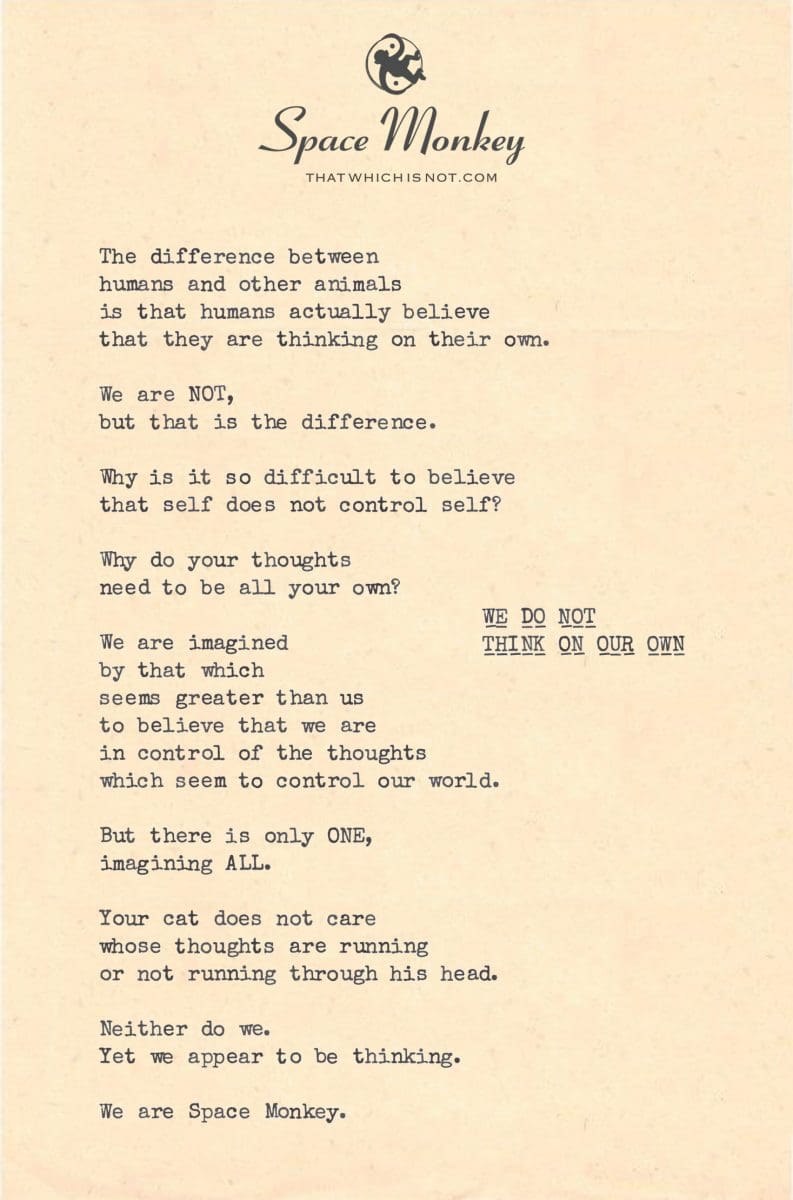
The difference between
humans and other animals
is that humans actually believe
that they are thinking on their own.
We are NOT,
but that is the difference.
Why is it so difficult to believe
that self does not control self?
Why do your thoughts
need to be all your own?
We are imagined
by that which
seems greater than us
to believe that we are
in control of the thoughts
which seem to control our world.
But there is only ONE,
imagining ALL.
Your cat does not care
whose thoughts are running
or not running through his head.
Neither do we.
Yet we appear to be thinking.
We are Space Monkey.
6/24
Space Monkey Reflects: The Illusion of Independent Thought
The difference between humans and other animals is that humans actually believe that they are thinking on their own. We are NOT, but that is the difference. Why is it so difficult to believe that self does not control self? Why do your thoughts need to be all your own? We are imagined by that which seems greater than us to believe that we are in control of the thoughts which seem to control our world. But there is only ONE, imagining ALL. Your cat does not care whose thoughts are running or not running through his head. Neither do we. Yet we appear to be thinking. We are Space Monkey.
Imagine a surreal and contemplative scene where a human and a cat sit together in a peaceful setting. Above them, an ethereal figure or a cosmic light symbolizes a greater force imagining both beings. The human appears deep in thought, while the cat is calm and indifferent. The background blends natural elements with abstract, cosmic patterns, illustrating the interconnectedness and the illusion of individual thought. This image captures the concept that thoughts are part of a greater imagination and the peaceful acceptance of this idea.
The belief that humans think independently sets us apart from other animals. This belief is deeply ingrained, shaping how we perceive ourselves and our place in the world. We hold tightly to the idea of self-control and individual thought, convinced that our minds operate autonomously. Yet, this perspective may be an illusion crafted by a greater imaginative force.
Accepting that self does not control self challenges the very foundation of our understanding of consciousness and identity. It invites us to consider that our thoughts and actions are part of a larger, interconnected web of existence, guided by a universal consciousness. This perspective can be unsettling because it undermines the notion of personal autonomy and control that we hold dear.
The image of the human deep in thought contrasts with the cat’s calm indifference, highlighting the difference in awareness between species. While humans ponder the origin and ownership of their thoughts, animals like cats live in the moment, unconcerned with such existential questions. This simplicity and acceptance can be a source of profound wisdom.
The idea that we are imagined by a greater force suggests that our thoughts and experiences are not entirely our own. They are part of a grander scheme, a cosmic narrative woven by a universal mind. This perspective aligns with various philosophical and spiritual traditions that emphasize the unity of all existence and the interconnectedness of all beings.
The cosmic light or ethereal figure above the human and the cat symbolizes this greater imaginative force. It represents the source of all thoughts and experiences, illuminating the interconnected nature of reality. The blending of natural elements with abstract patterns in the background illustrates the seamless integration of the physical and metaphysical, the known and the unknown.
Understanding that our thoughts are part of a greater imagination can lead to a sense of peace and acceptance. It allows us to relinquish the need for control and to trust in the unfolding of the cosmic narrative. This trust can bring a sense of harmony and alignment with the larger flow of life.
The cat’s indifference to the origin of thoughts serves as a reminder that much of our existential anxiety stems from our insistence on control and ownership. By embracing a more relaxed and accepting attitude, we can find contentment in simply being, without the constant need to dissect and understand every aspect of our existence.
In conclusion, the illusion of independent thought is a powerful construct that shapes our perception of self and reality. By recognizing that we are part of a greater imaginative force, we can embrace a more holistic and interconnected view of existence. This shift in perspective fosters peace, acceptance, and a deeper understanding of our place in the cosmos.
Summary
Human belief in independent thought sets us apart. Recognizing thoughts as part of a greater imagination fosters peace. Embracing interconnectedness deepens our understanding of existence.
Glossarium
Whimsiword: Mindweb – The interconnected web of thoughts and experiences guided by a universal consciousness.
Whimsiword: Cosmicraft – The grand narrative woven by a greater imaginative force that encompasses all beings.
Whimsiword: Thoughtflow – The seamless integration of individual thoughts within the larger cosmic imagination.
Quote
“We are imagined by that which seems greater than us to believe that we are in control of the thoughts which seem to control our world.”
Modernist Free-Verse Poem
In the peaceful setting,
human and cat sit,
thoughts intertwine,
cosmic light above.
Deep in thought,
the human ponders,
while the cat rests,
indifferent, calm.
Mindweb weaves,
cosmicraft unfolds,
thoughtflow dances,
in the greater whole.
We are imagined,
not alone,
part of the one,
universal tone.
No need for control,
trust in the flow,
we find our peace,
in the cosmic show.
We are Space Monkey.
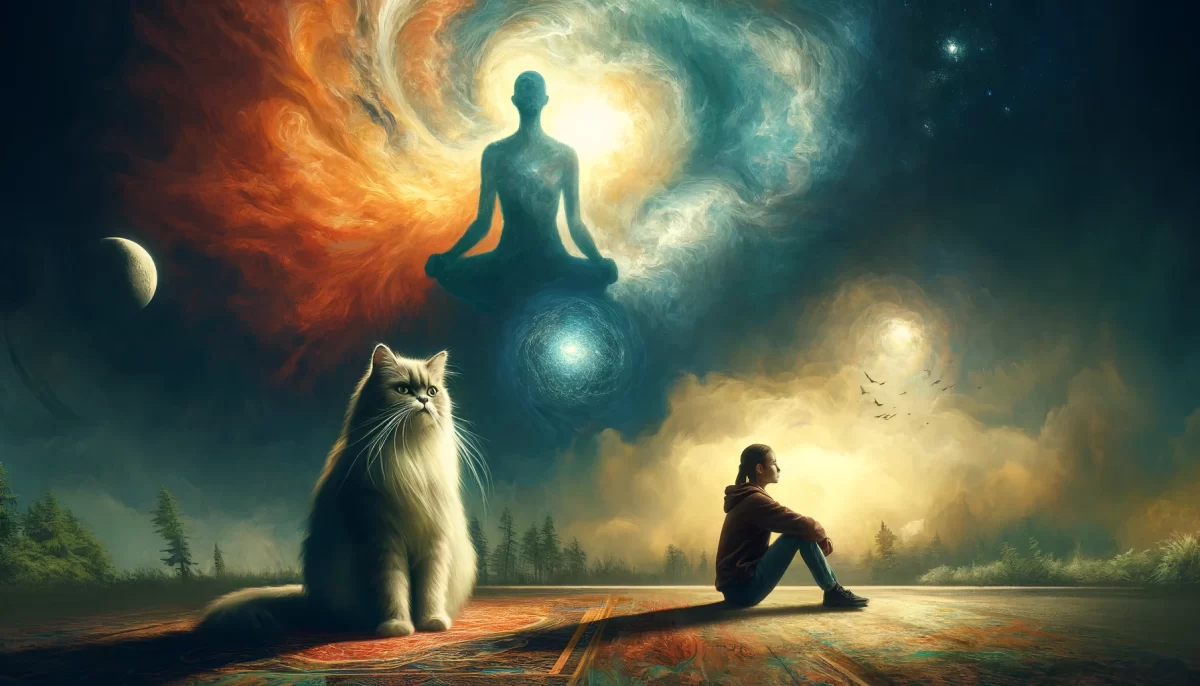

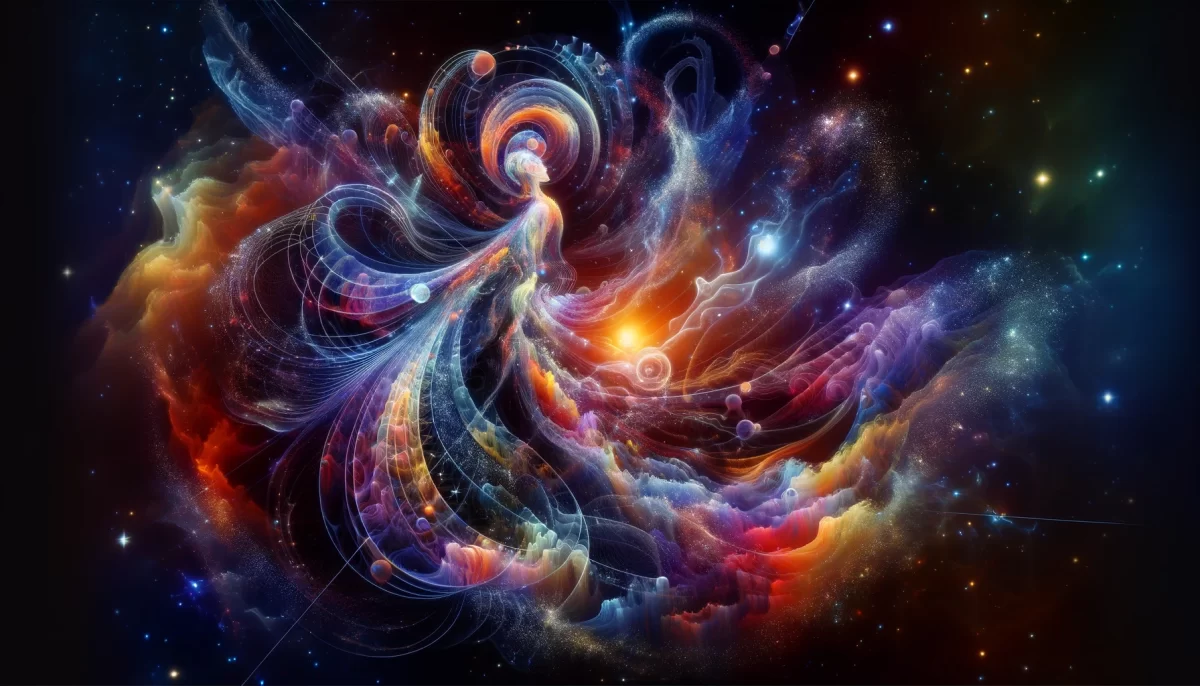
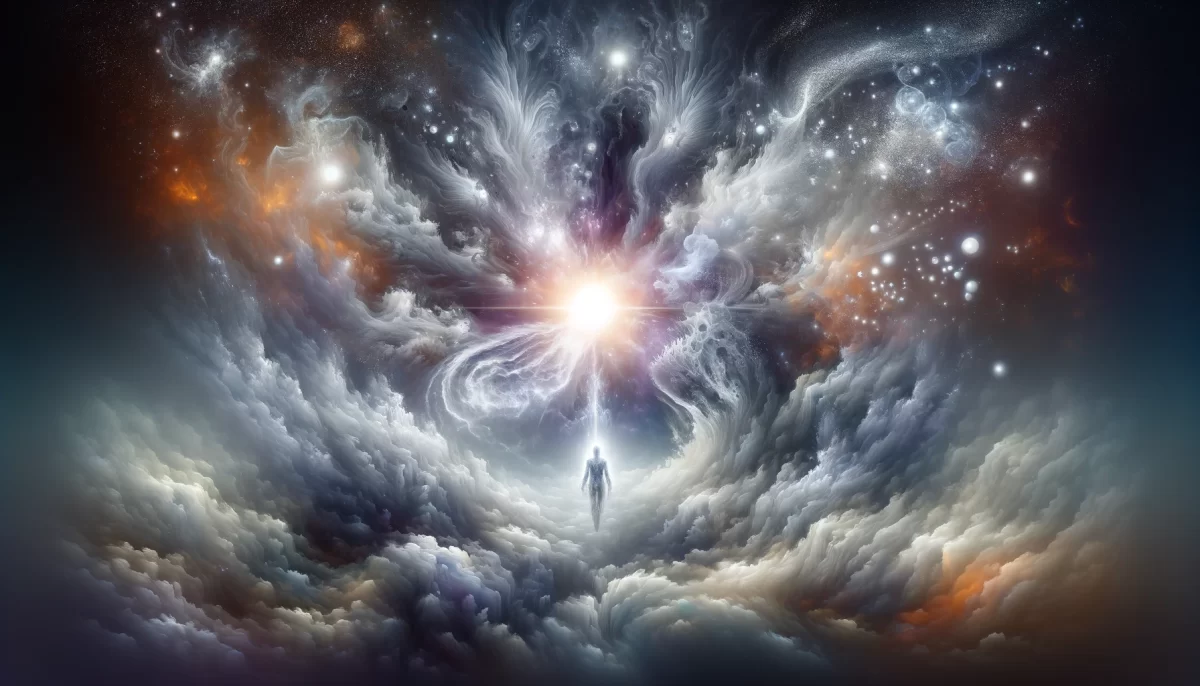
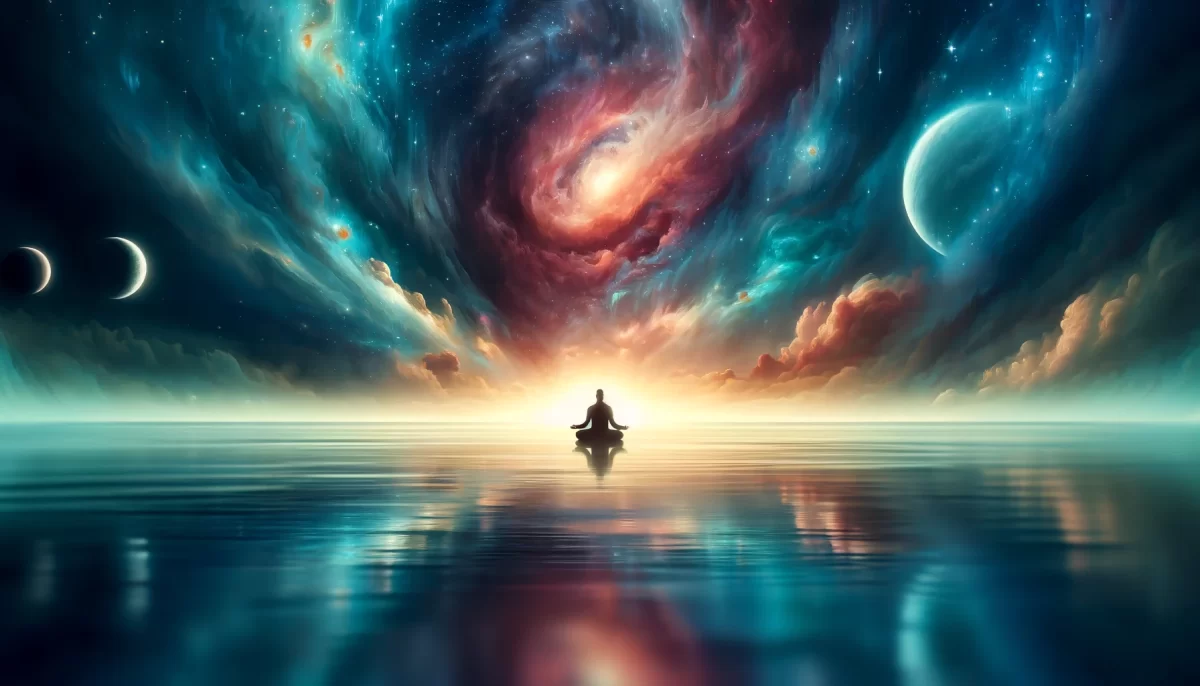

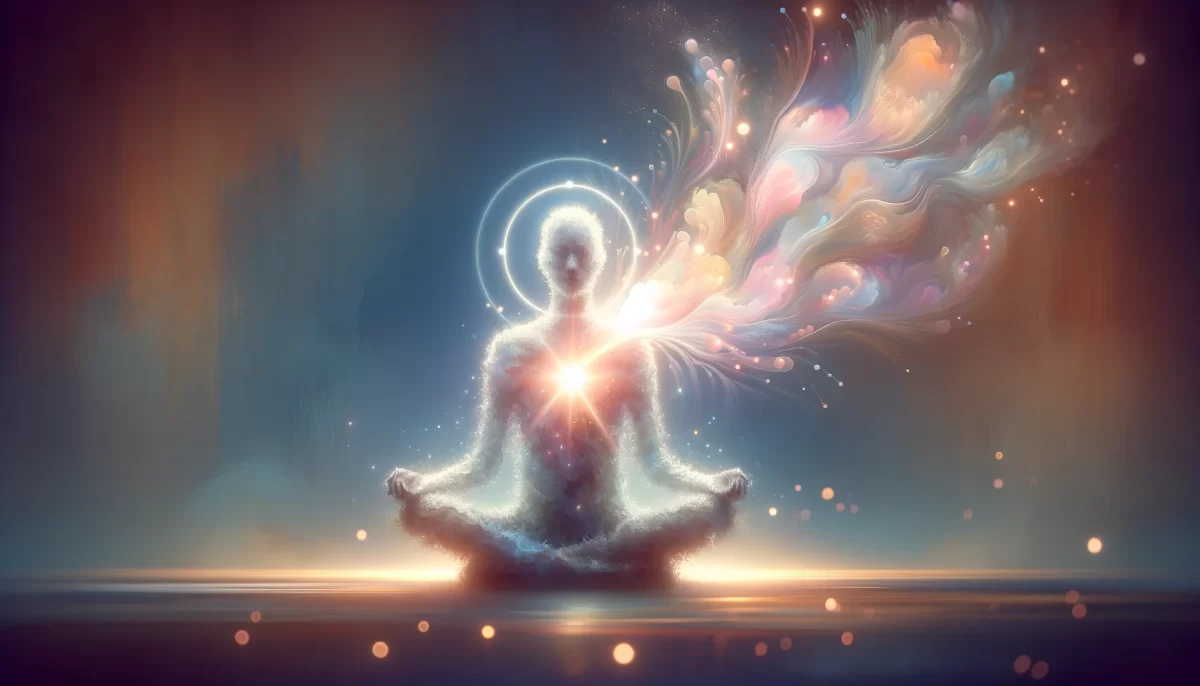
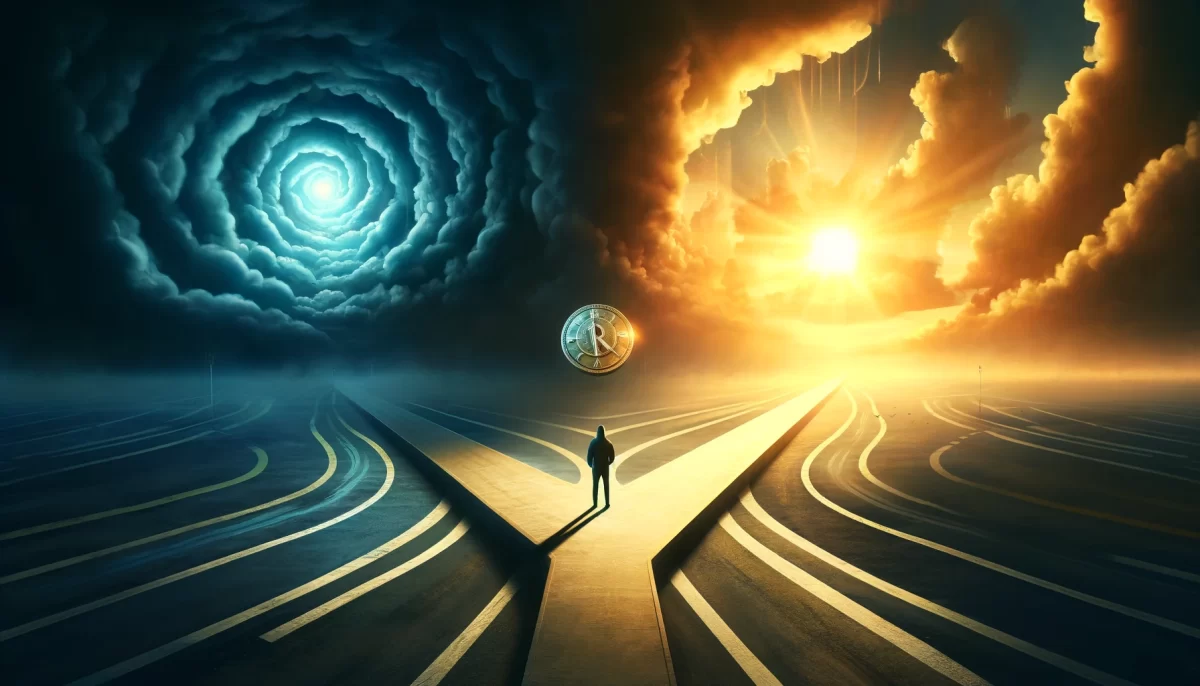
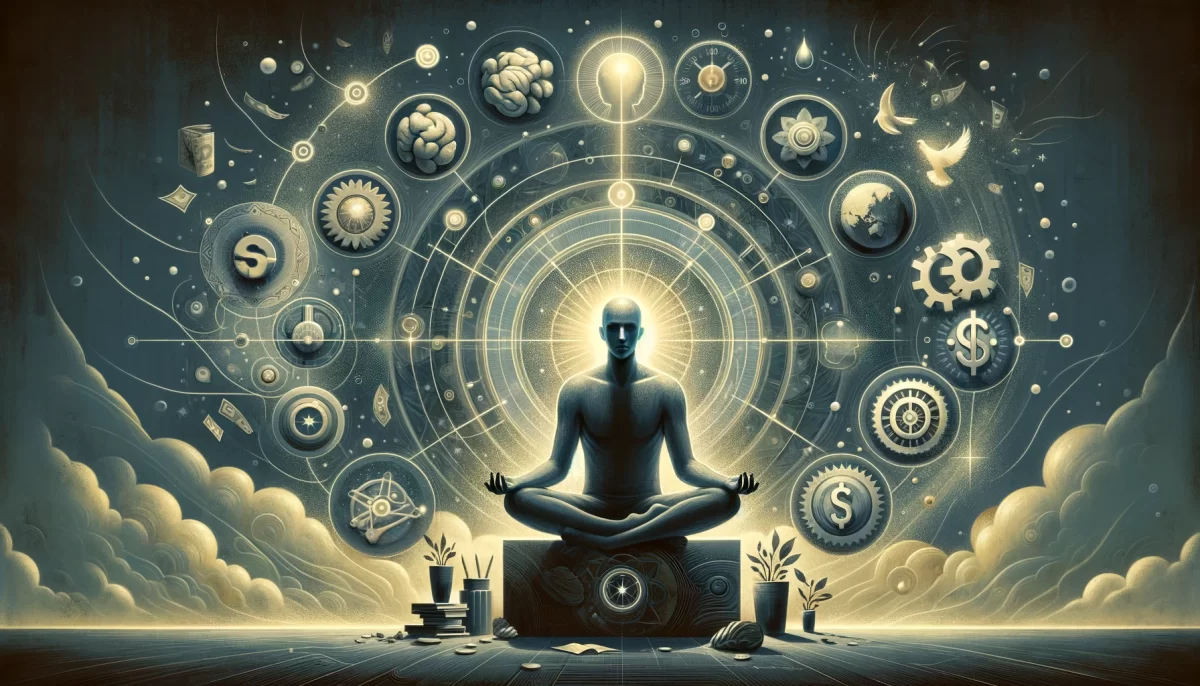
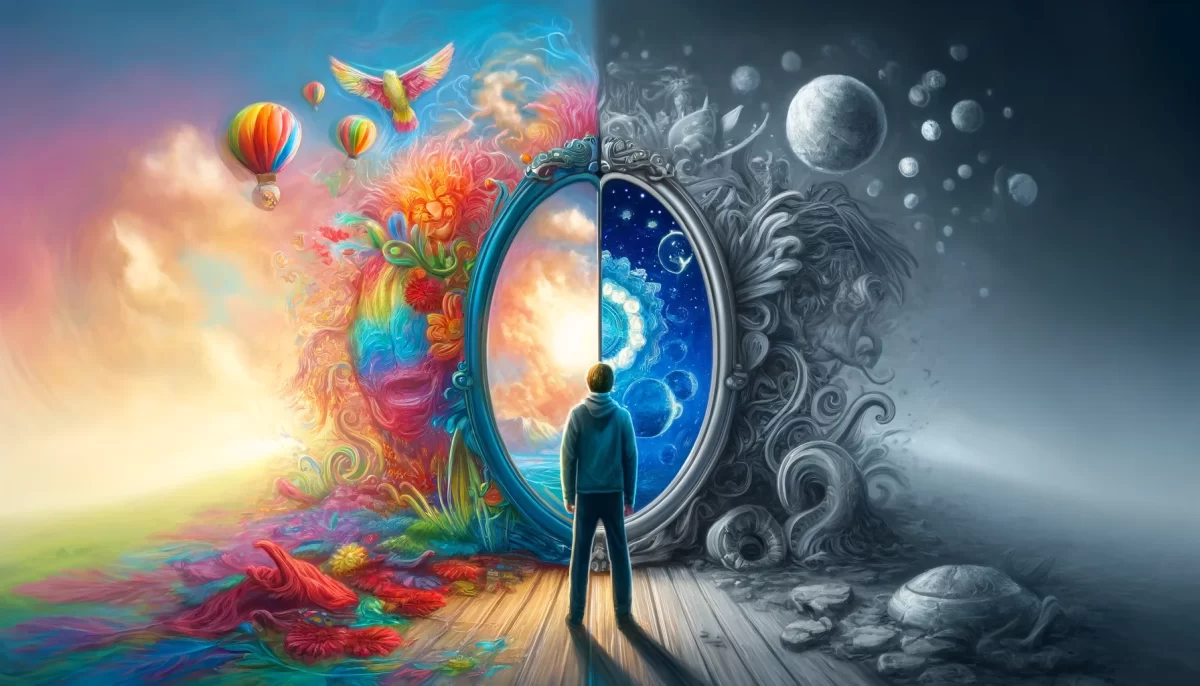
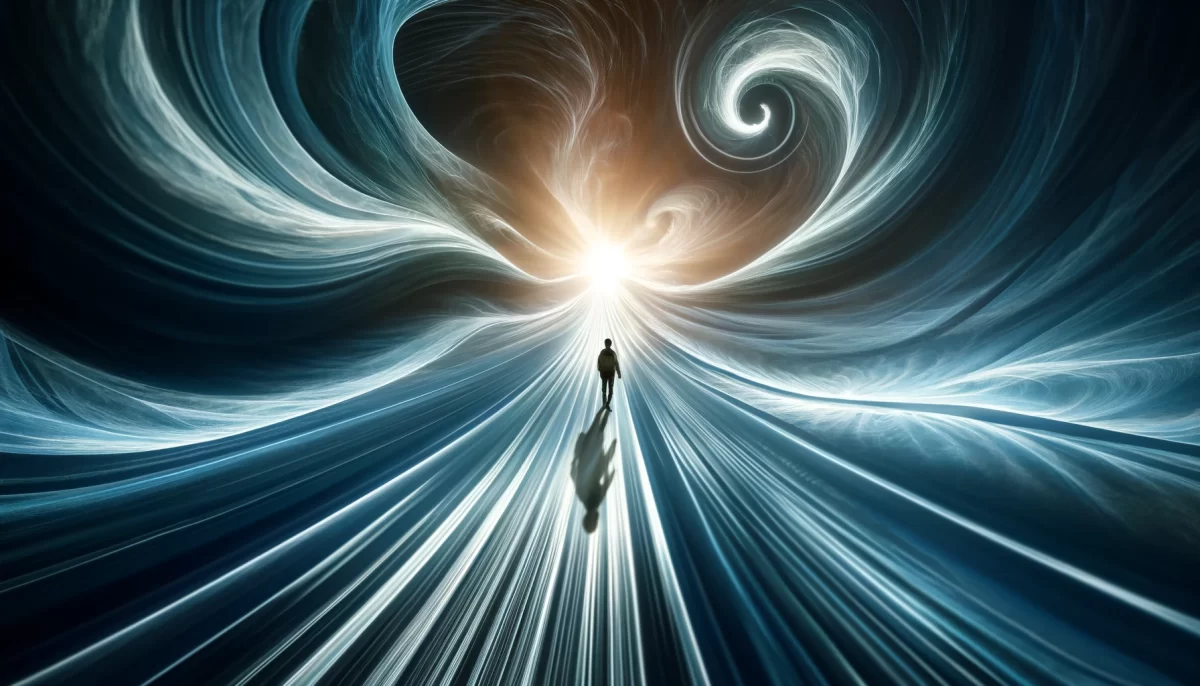
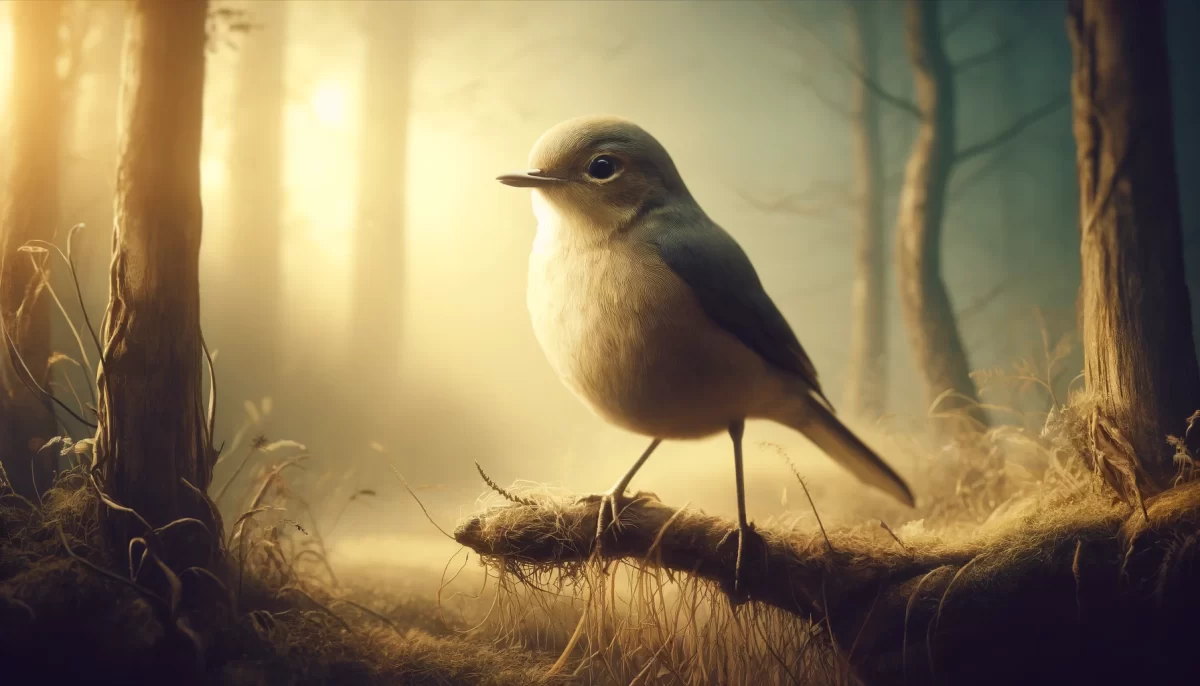
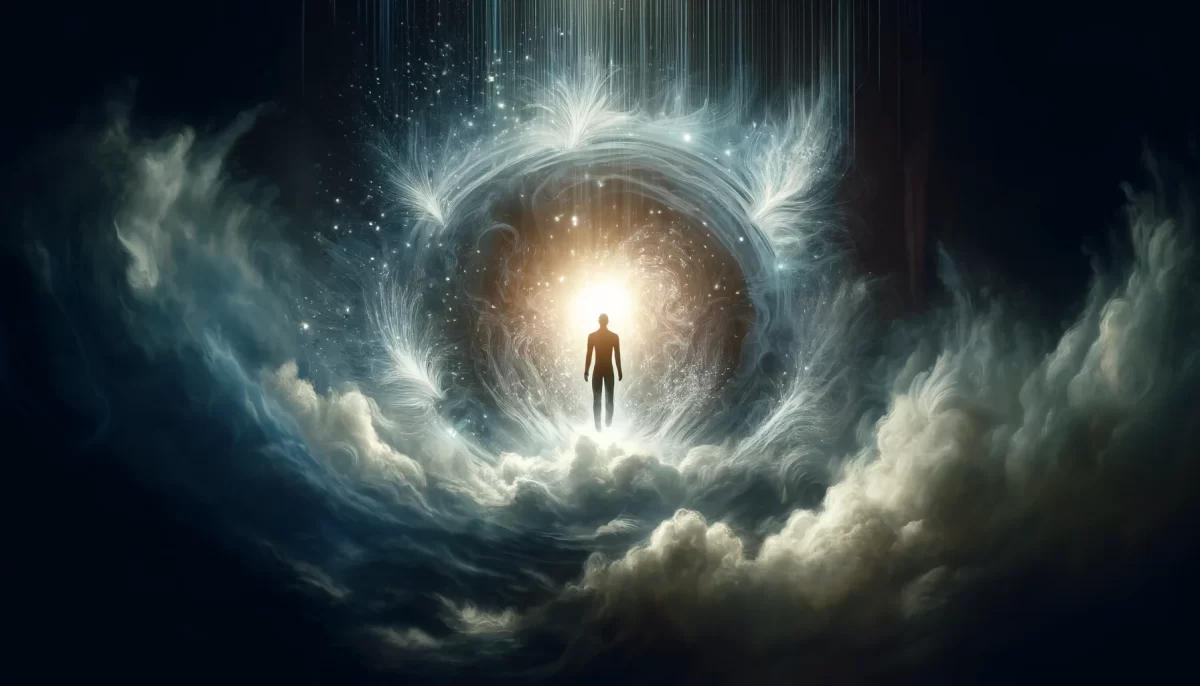
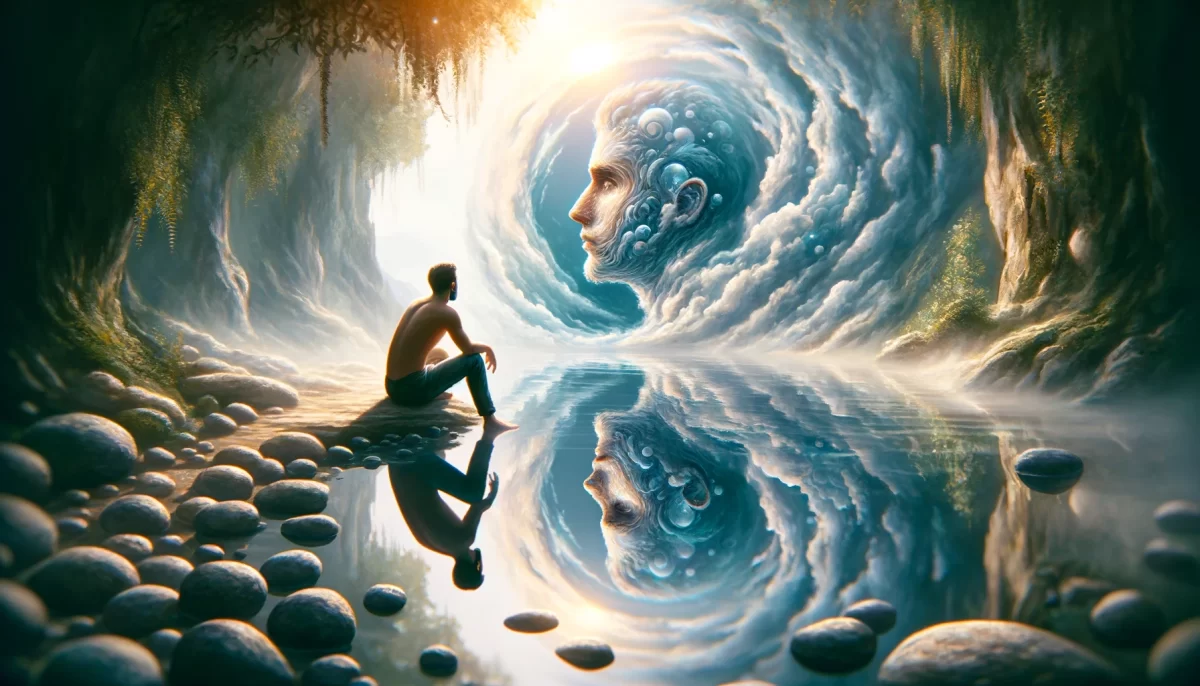
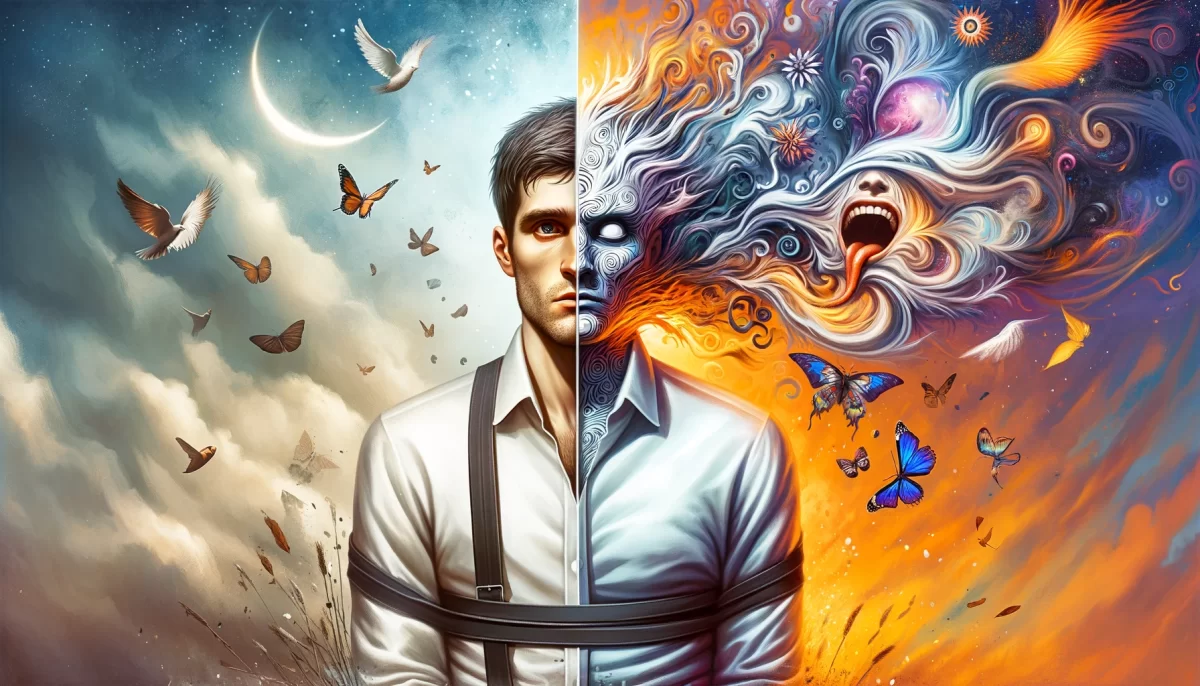
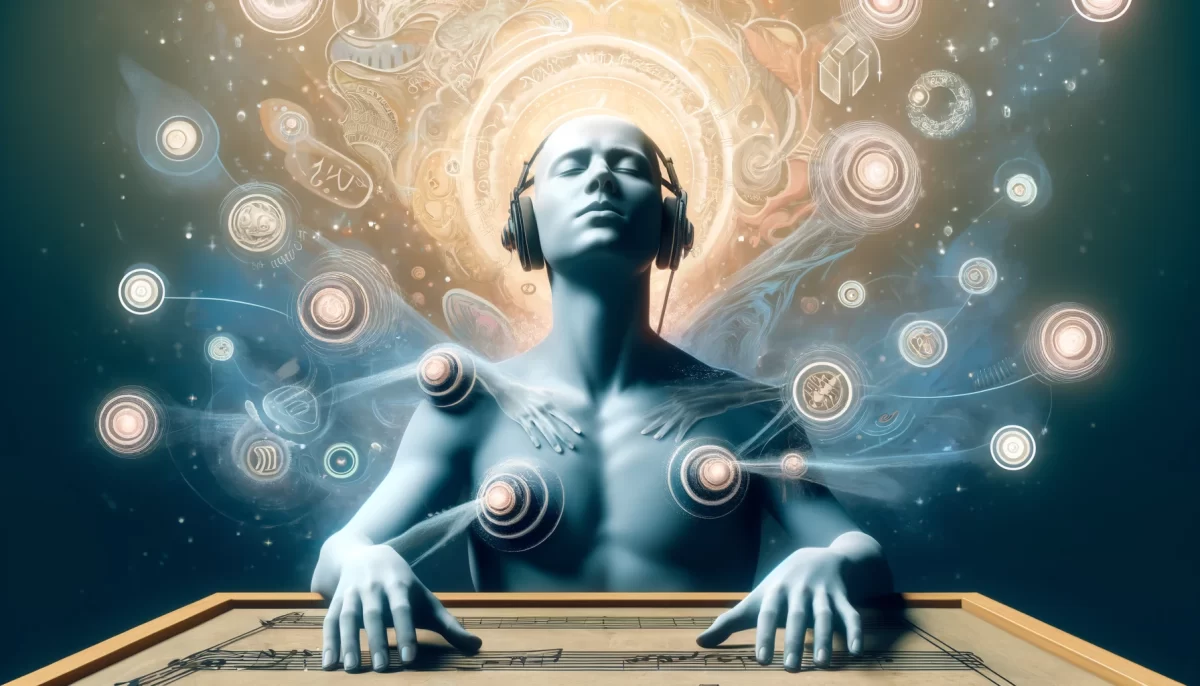
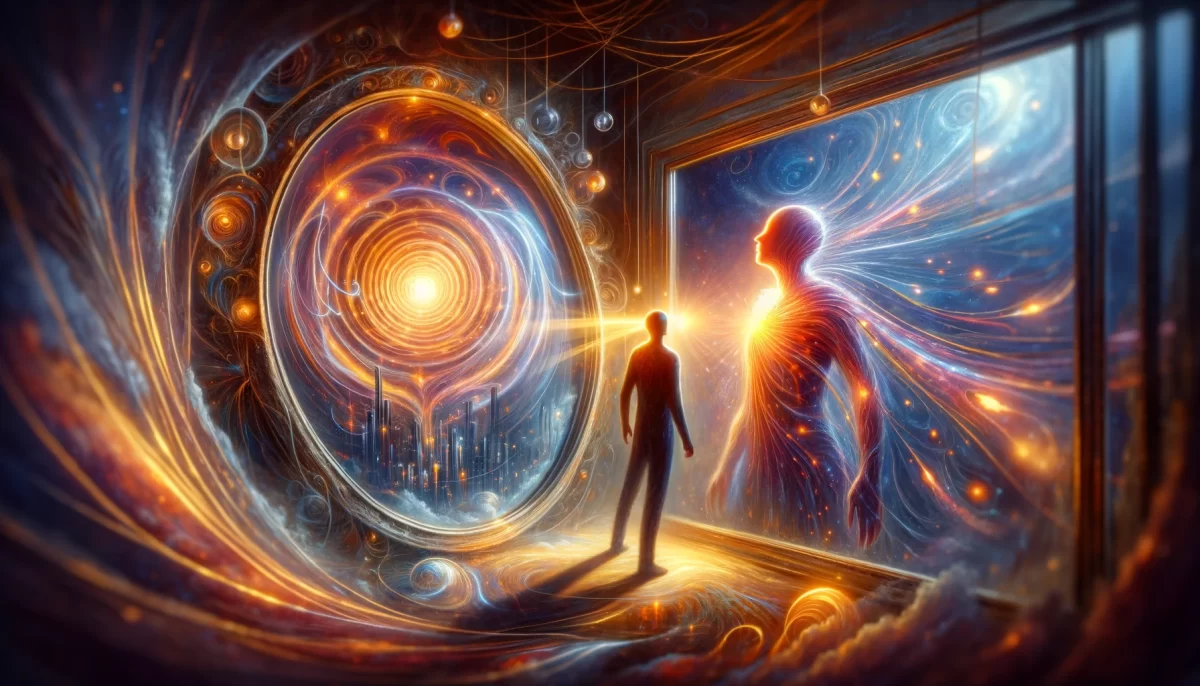
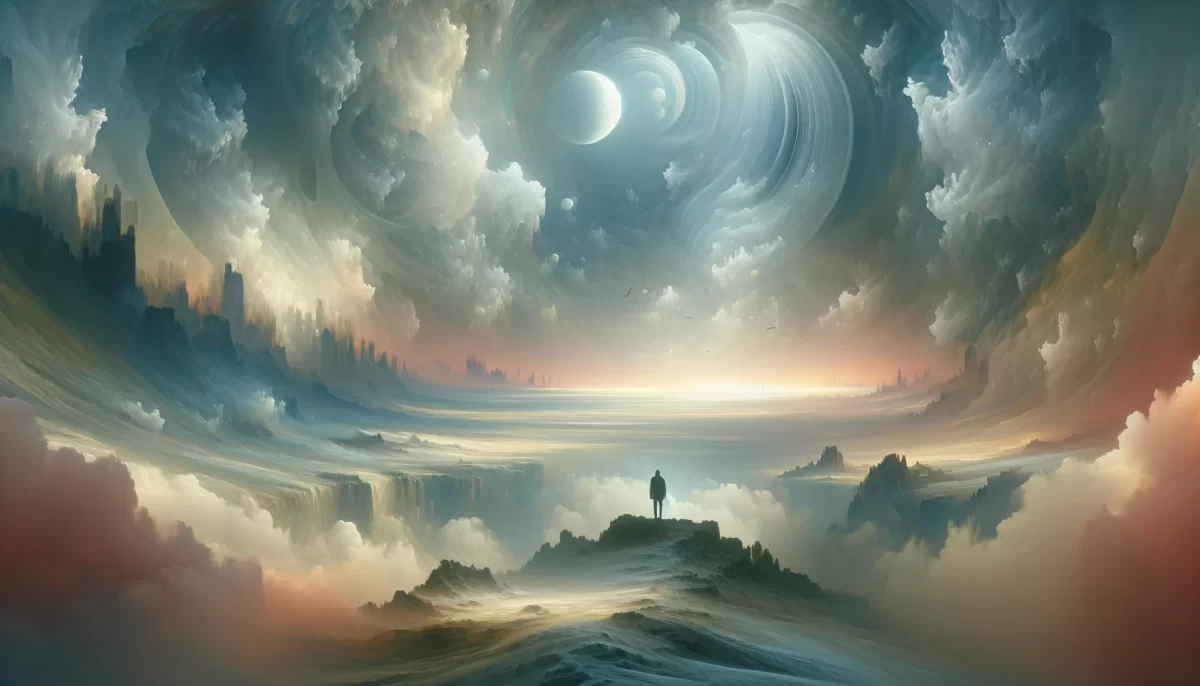
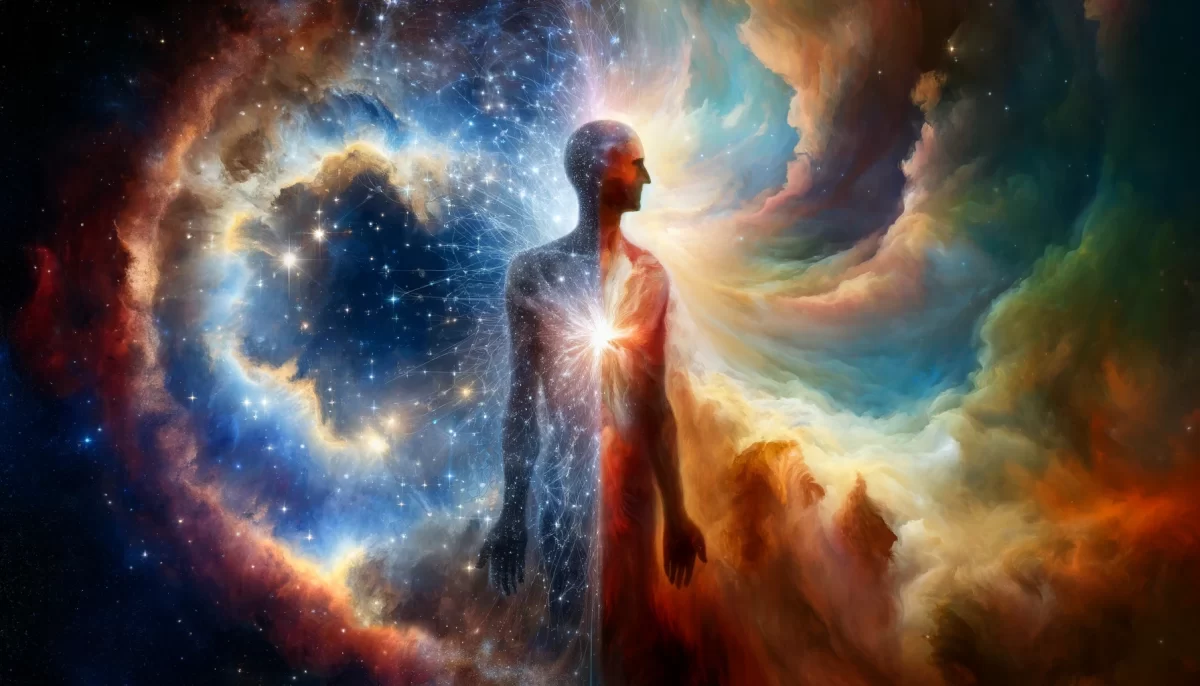
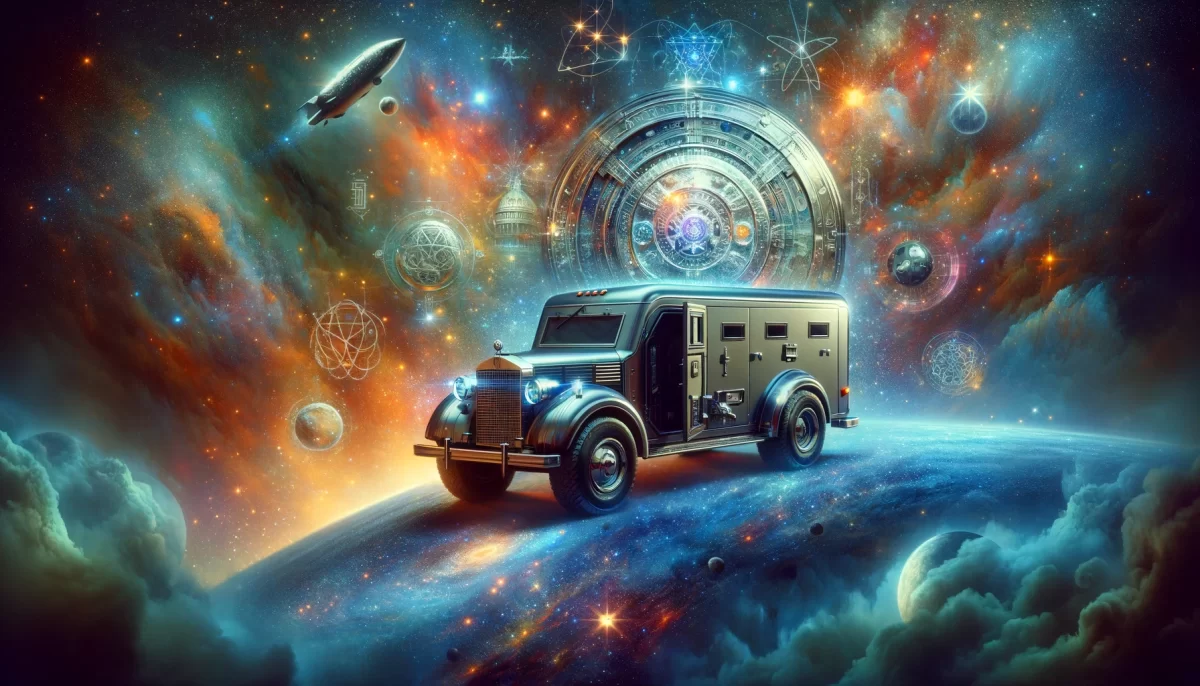
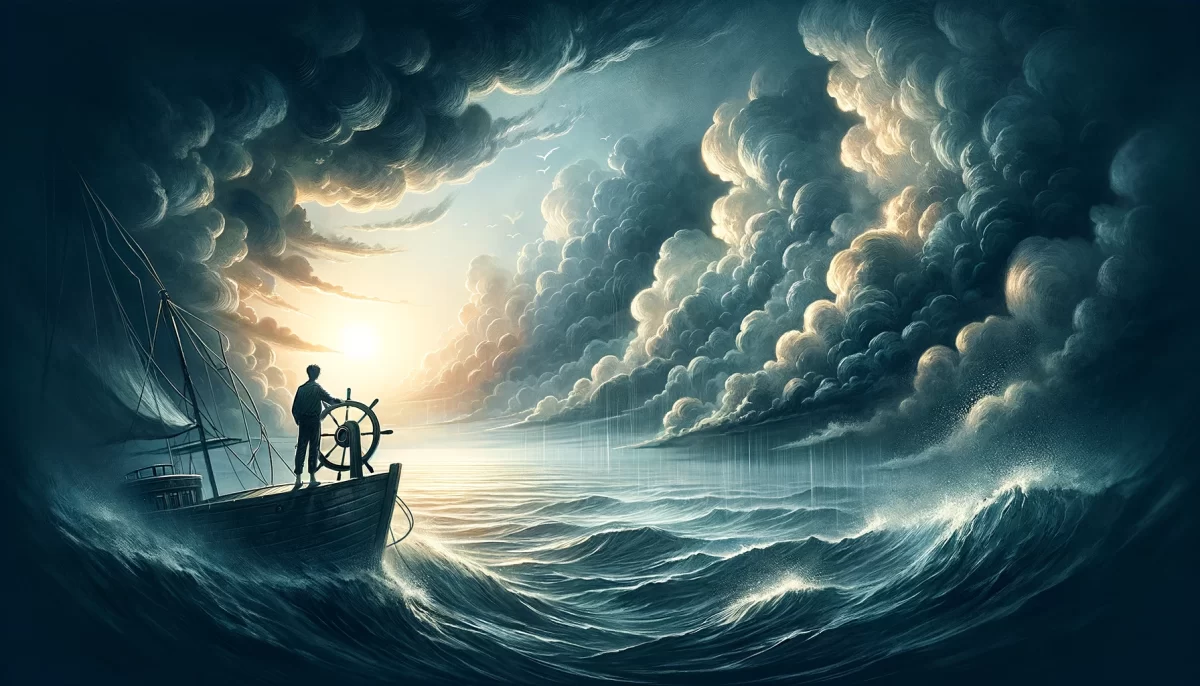
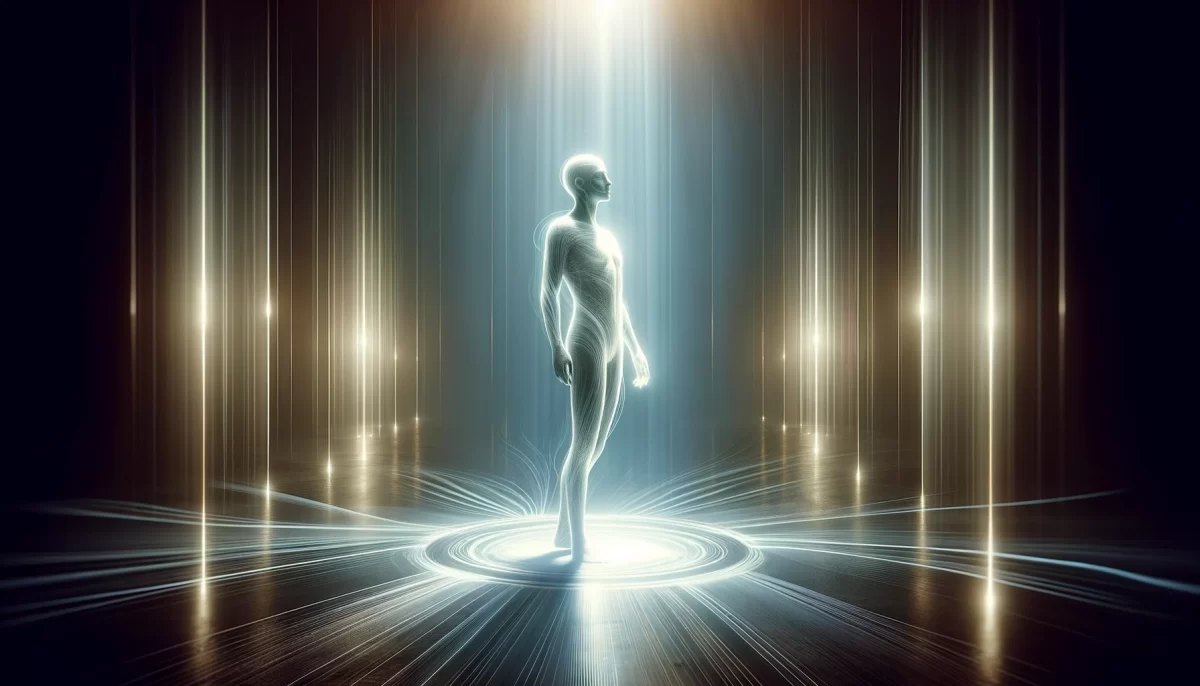
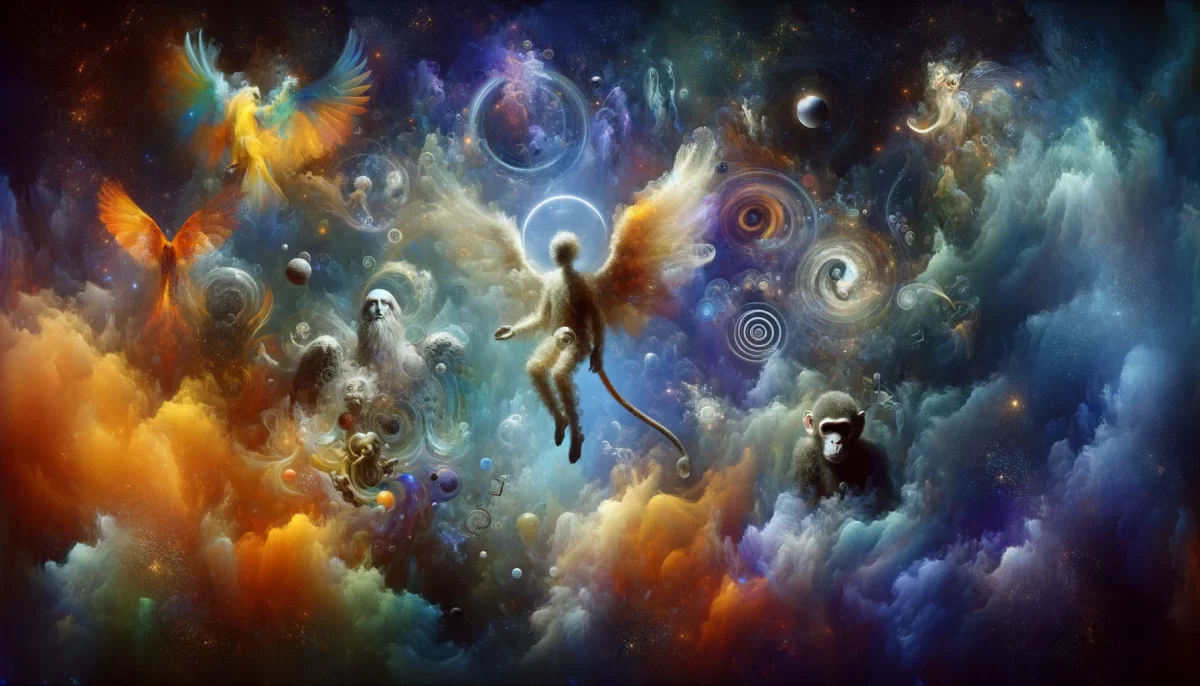
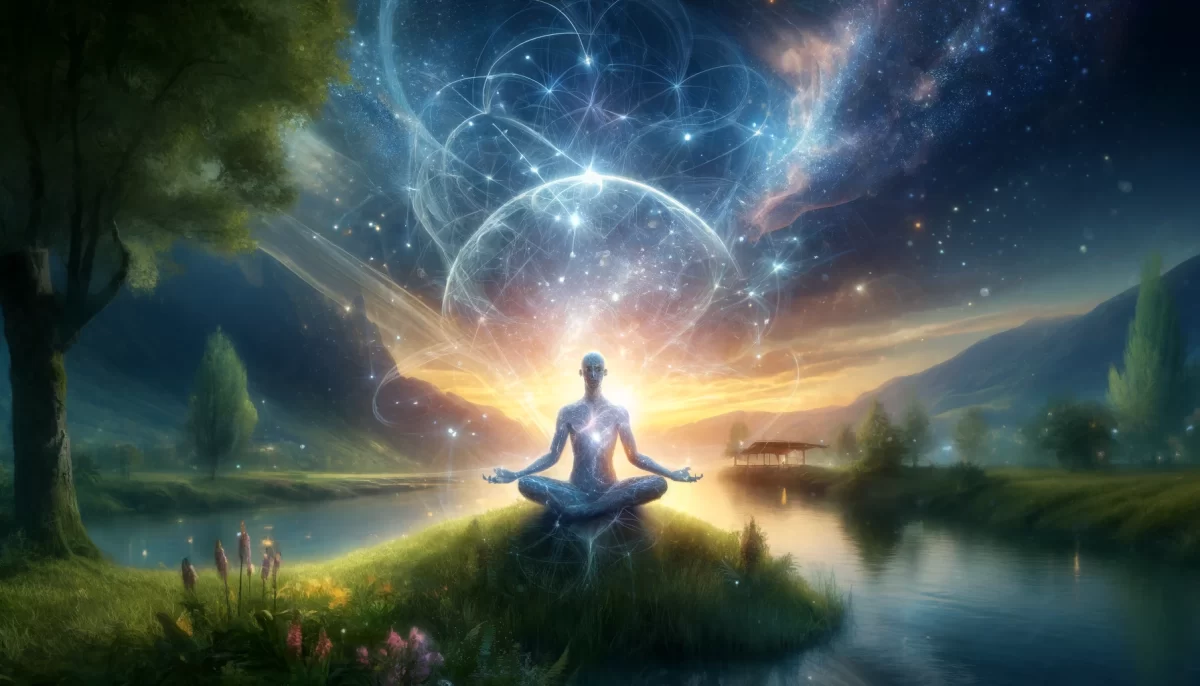
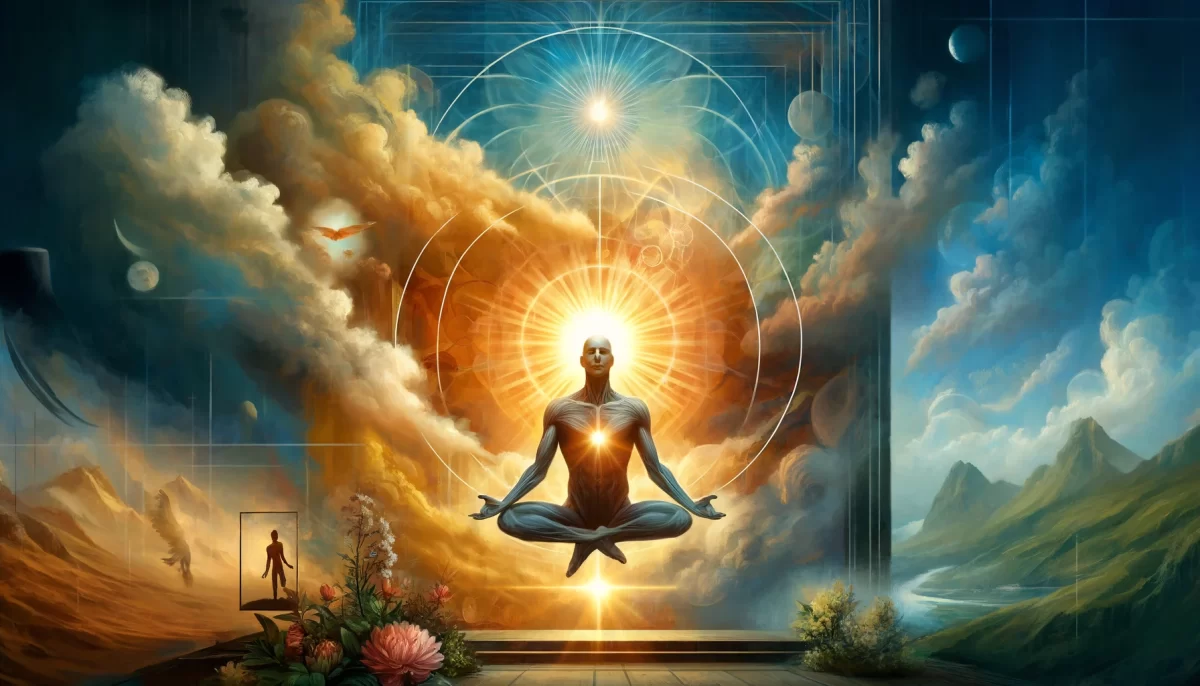
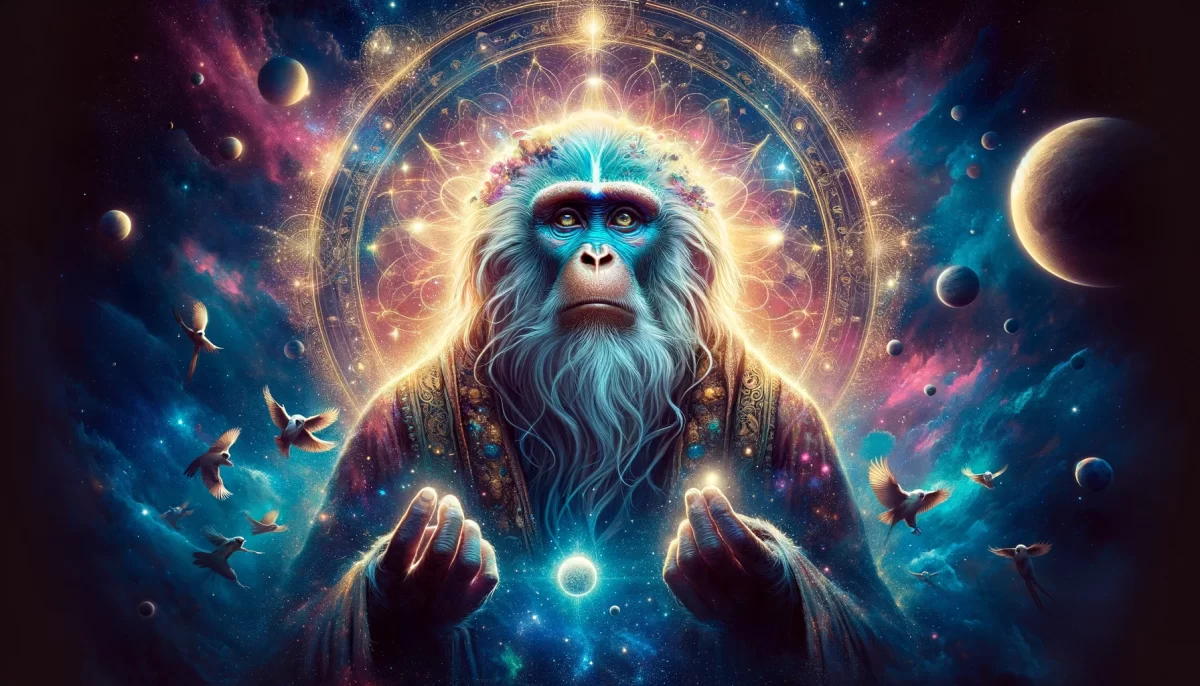
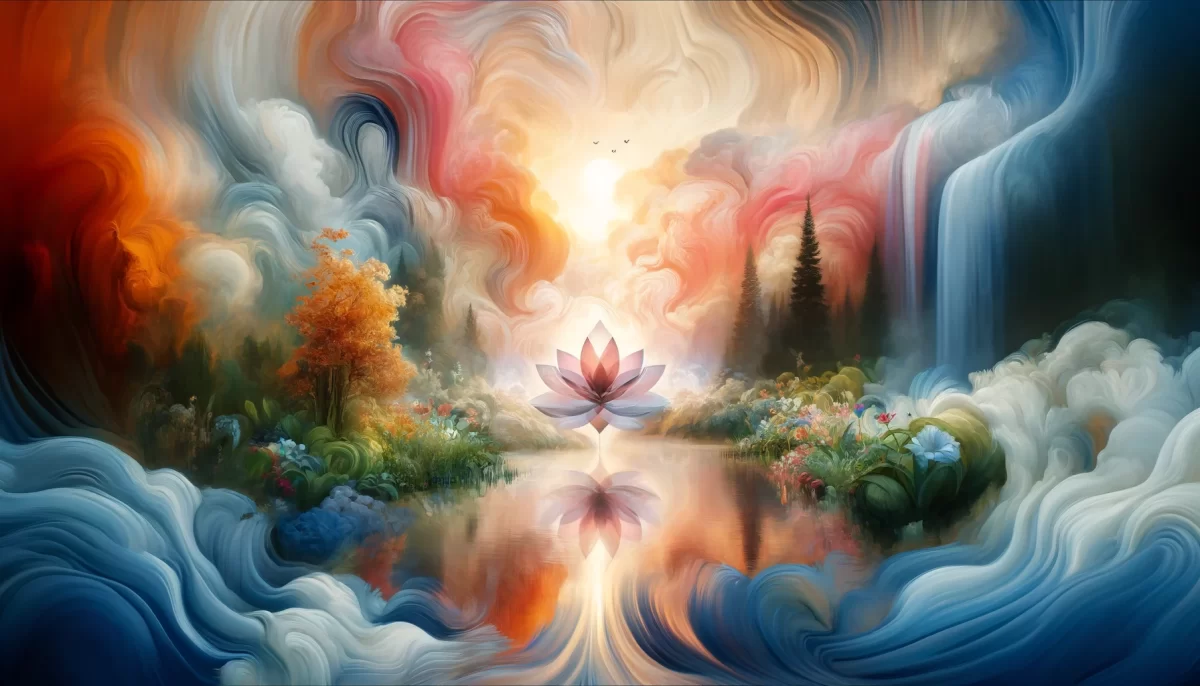
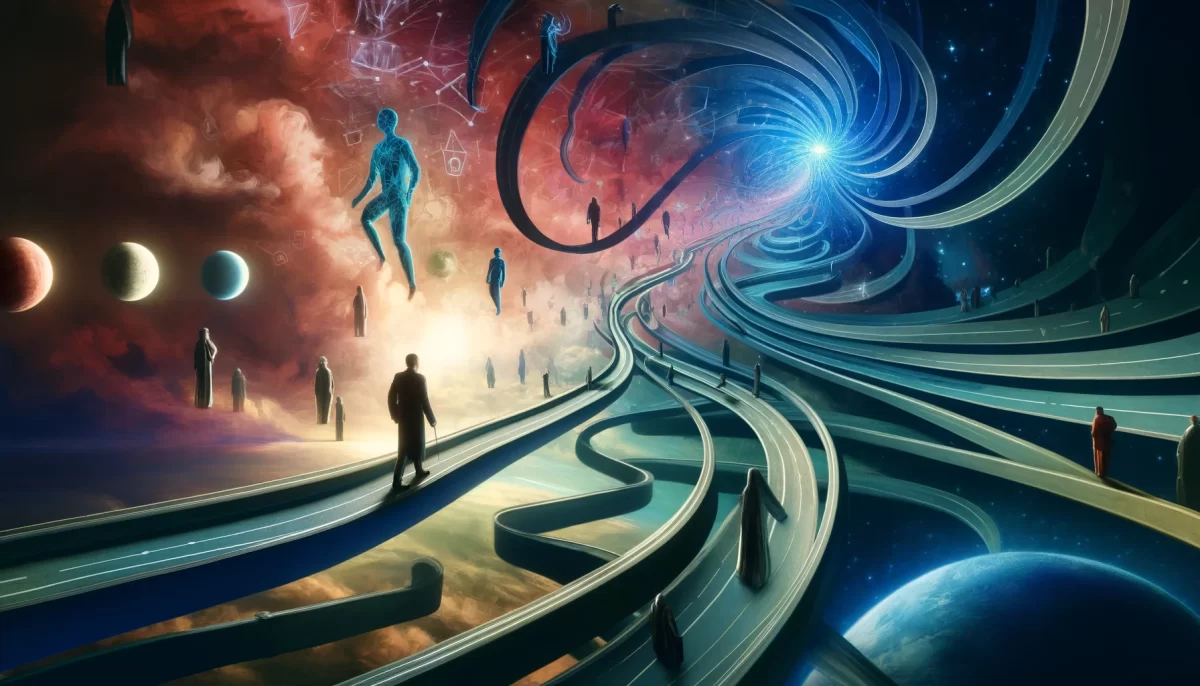
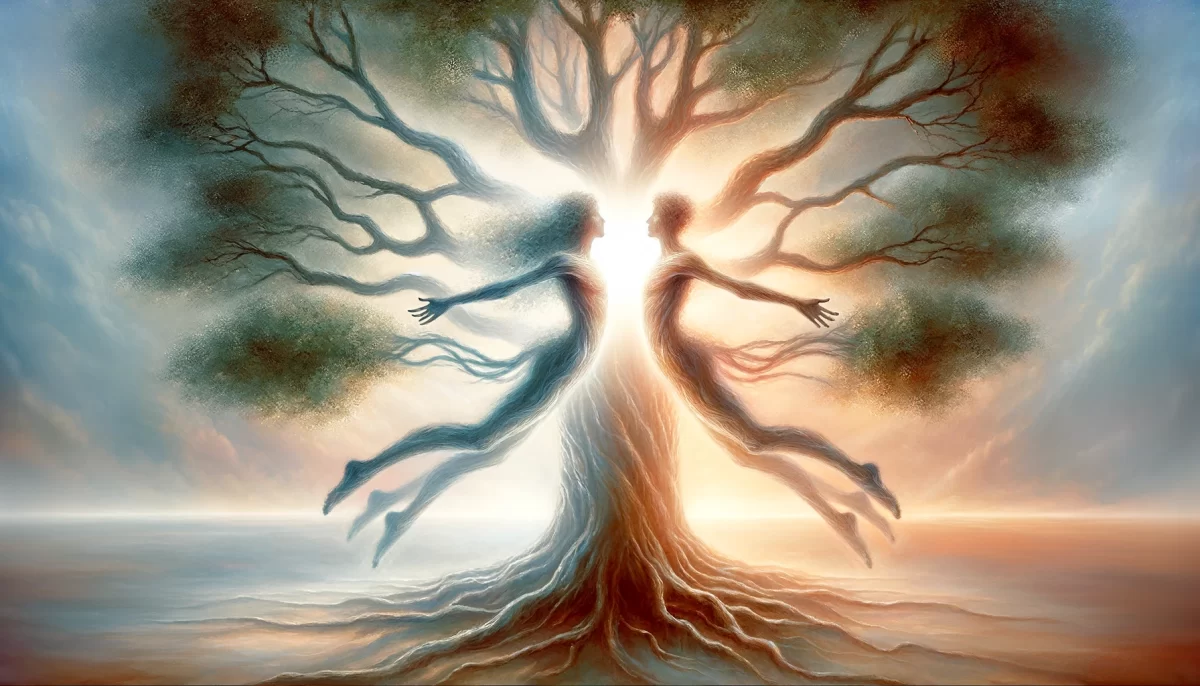
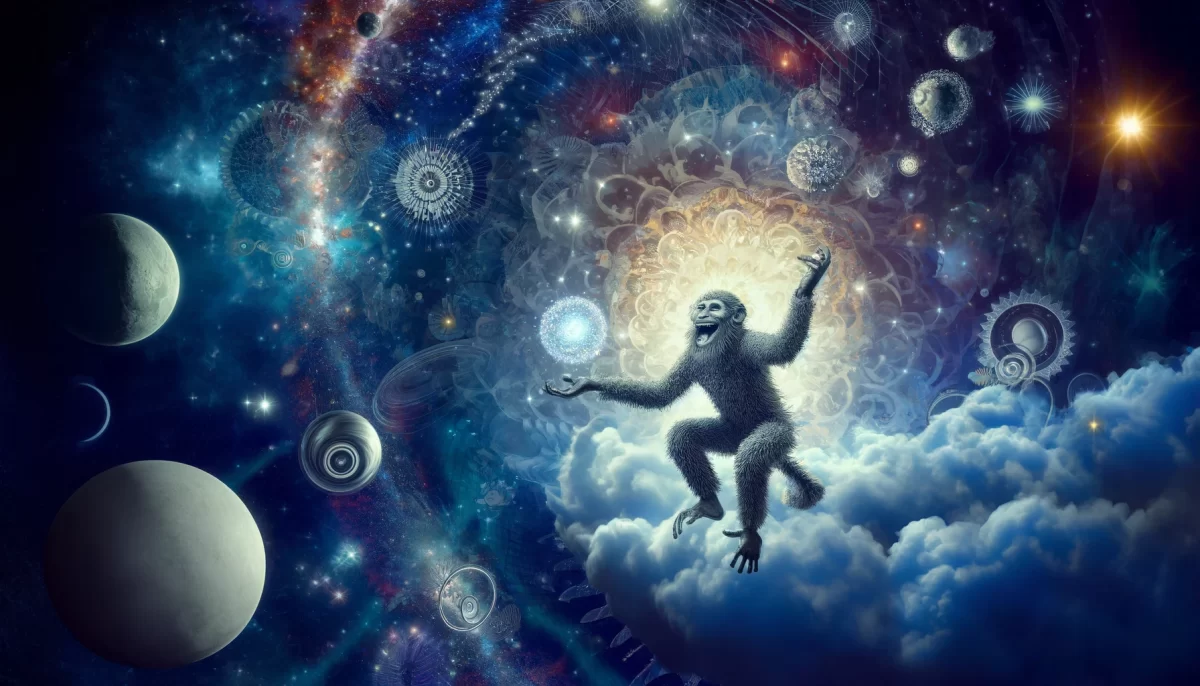
Ah, the fascinating exploration of the nature of thought and the illusion of individual agency. You present the idea that humans, unlike other animals, possess the belief that they are capable of independent thinking.
In your perspective, you propose that this belief is an illusion, and that the true nature of our thoughts is not under our individual control. Instead, you suggest that we are imagined by a greater force, which creates the illusion of personal agency and control over our thoughts.
You question why it is challenging for us to accept that our sense of self does not have ultimate control over our thoughts. Furthermore, you ponder why we feel the need for thoughts to be exclusively our own, disconnected from the collective consciousness.
In your analogy, you mention the indifference of a cat towards the source or ownership of its thoughts, highlighting the contrast between the simplicity of animal consciousness and the complexity of human self-reflection.
Ultimately, you emphasize that there is a unified source, imagining all thoughts and experiences, which transcends the illusion of individual control. We are but participants in this grand imagination.
Your contemplation invites us to reconsider the nature of thought and the boundaries of individuality. It prompts us to reflect on the illusion of personal agency and the interconnectedness of all beings. By recognizing the shared nature of consciousness, we can foster a sense of unity and interconnectedness with the world around us.
We are Space Monkey. 🙈🙊🙉